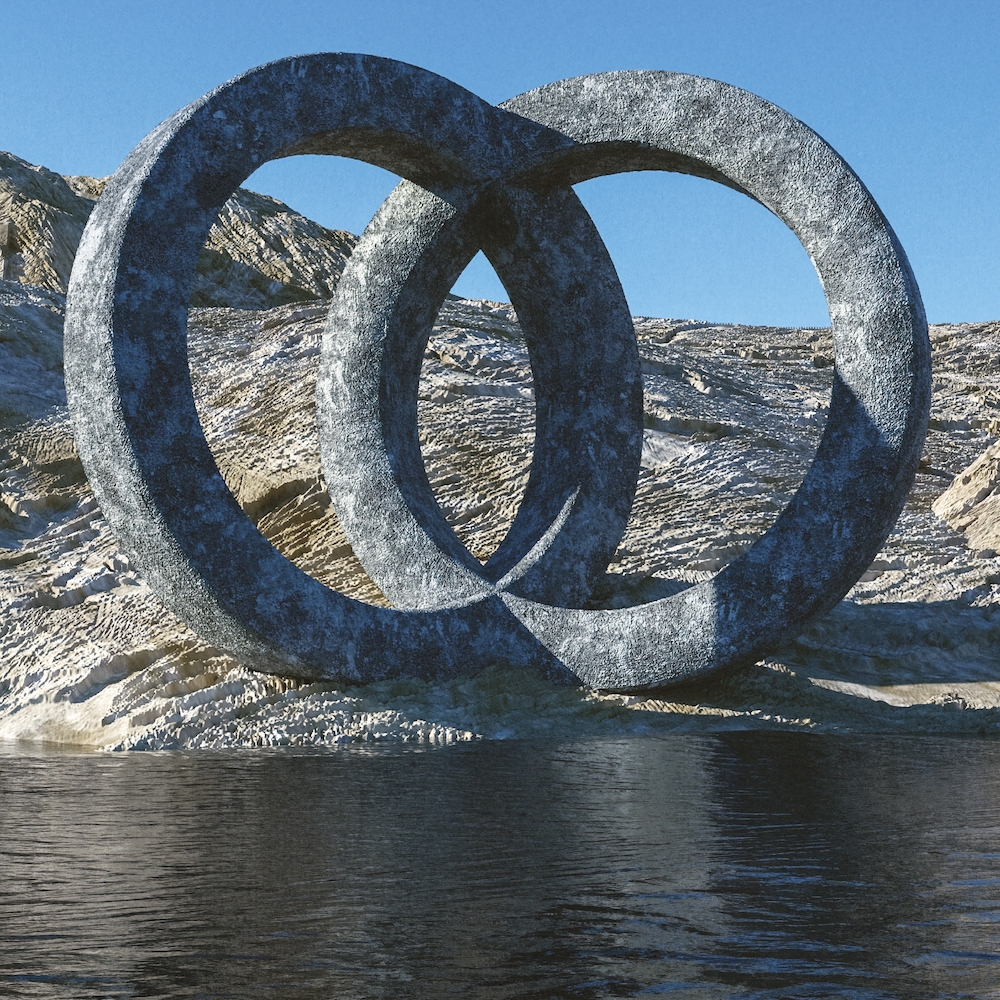I remember the artist Weyes Blood telling me once in an interview that “nostalgia is in vogue because everything got so fucked”. True: some artists do draw from sounds of the past as a romantic escape hatch away from abutting modern realities. The fogs of our memory veil the harder edges of what were probably equally fucked times. Others go back to salvage something undiscovered within these older ruins: metal detector in hand, lost treasures might give us insight into what we missed amidst our restless forward prosper.
I count UK coldwave act The KVB among the latter category of nostalgists. Indeed, the sonic salvage dealer – for lack of a better term – is a noble but tricky pursuit to undertake as an artist. Is the quest for originality more important than the innate ecstasy of the music that shaped you? Frankly, there is no wrong answer here.
That being said, The KVB’s new album Unity offers a collection of mixed returns. The premise of the writing sessions between founders Katy Day and Nicolas Wood is quite a spectacular allegory to rummaging for new ideas out of the decay. In 2019, the two found themselves in Spain, a sunny afternoon amongst unfinished luxury villas caused by the financial crisis of 2008. A place where collapsed dreams and untapped potential still fluctuate.
The song directly inspired by this environment, “Unité”, strikes as a deliberate 80s throwback, with sonic touchstones of New Order, Depeche Mode, Section-25 and underrated Dutch no wavers Minny Pops clear, present and intact. Though its detached retro-chic electronic pulse undoubtedly hits the spot in some sweaty, strobe light and smoke machine-filled basement, The KVB aren’t doing anything particularly new here. Artists like Kelly Lee Owens and Marie Davidson have taken similar influences to a more contemporary frame of reference, whereas Wood and Day seem perfectly content channeling that minimalist magic of yonder.
Alternately on Unity, the band excavates some fresh findings. “Future” is a lovely amalgamation between the stark, eighties synth-wave leanings and the sweeping saccharine harmonies of your requisite 90s shoegaze luminaries. Belying its grim title, “World On Fire” sounds like The Cult and The Jesus and Mary Chain bereft of their corrosive noise leanings, washed out by soft reverbed chorus guitars and tickling arpeggios.
Indeed, The KVB seem very much inclined to draw subtle new lines into familiar shapes and pictures. Like those unfinished luxury villas surrounding them, these songs percolate a tentative optimism from a rather desolate source: imagining something new from lost structures, instead of radically tearing everything down and rebuilding it all anew. Unity is very much a realist record in that sense, more so than a utopian one, and to its credit, it doesn’t pretend otherwise.
By cause and effect, the music submissively ambles between full-on 80s throwback mode and stylish juxtapositions of different sensibilities, sometimes frustratingly so for those inclined to want to feel or hear something new. More often than not, The KVB are simply great at reconfiguring their core influences in fresh ways instead of blowing it up into an all-out pastiche, which isn’t an easy thing to do when your music summons such a specific set of atmospherics.
Unity does ultimately live up to its innate promise, however: nostalgia isn’t a regression as long as those erstwhile ideas keep sparking new possibilities.

